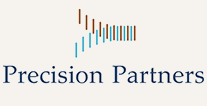In the recent past, I managed my late father’s cancer treatment journey. What began as a straightforward medical situation quickly evolved into a complex data management challenge that quite literally had life-or-death implications.
Each specialist ordered different tests, and each visit generated new results. Medications changed weekly, with dosages adjusted based on his response. Treatment options emerged and disappeared as new information came to light. Throughout this process, I became the central repository of my father’s medical information—the human database ensuring that every doctor had the complete picture before making decisions.
One afternoon stands out in my memory. During a routine oncology appointment, I noticed the doctor reviewing outdated scan results. Fortunately, I had organized all the recent tests in a dedicated folder on my tablet. “That’s actually been replaced by these results from Tuesday,” I said, pulling up the newer images. The doctor’s treatment recommendation changed based entirely on this updated information.
At that moment, I understood viscerally what good data governance means. It’s not about perfect organization for its own sake—it’s about ensuring the correct information reaches the right people at the right time to drive better outcomes.
In the context of Advancement Services, data governance refers to the policies, standards, roles, and processes that ensure institutional data is accurate, consistent, secure, and reliable. Without strong governance, even the best technology tools cannot deliver the insights your fundraisers and leaders need.
The Hidden Crisis and Solution in Advancement Data Governance
As Advancement Services leaders, you face a surprisingly similar challenge. Your institutions aren’t just managing data—you’re managing the lifeblood of relationships that fuel your mission. Yet many advancement operations suffer from data governance issues that quietly undermine their effectiveness.
When donor information lives in multiple systems or spreadsheets, you can’t build a complete picture of their relationship with your institution. Like a doctor seeing only partial medical records, your frontline fundraisers make decisions based on incomplete information.
Your data becomes unreliable without clear rules for gift attribution, pledge processing, or soft credit allocation. Reports show different totals depending on who runs them, creating a crisis of confidence in your numbers. And when data definitions, business rules, and processes exist only in the minds of long-time employees, your organization faces significant risk. What happens when that gift processing specialist who “just knows how it works” retires?
Common signs of weak data governance include duplicate records leading to multiple solicitations, misattributed major gifts causing stewardship issues, and inconsistent prospect statuses, making campaign forecasting unreliable.
As I created a system to manage my father’s medical information, you need a structured approach to govern your advancement data. Start by establishing clear data ownership—assign specific individuals responsibility for different data domains within your Advancement Constituent Relationship Management (CRM) platform. Someone must “own” constituent biographical data, “own” gift processing standards, etc.
Practical examples might include:
- Defining exactly how soft credits for matching gifts are applied.
- Setting standardized formats for constituent names and addresses.
- Implementing a workflow to review and verify address changes before updating records.
Create a shared glossary that clearly defines what terms like “constituent,” “prospect,” “donor,” and even “alumnus/a” mean at your specific institution. This will eliminate confusion and ensure consistent reporting.
Develop regular data auditing procedures to catch problems before contaminating your entire system. Just as doctors order regular blood tests to monitor health markers, you need routine data quality assessments.
Data governance is not a one-person job. Success depends on cross-functional collaboration—bringing together Advancement Services, frontline fundraisers, leadership, and IT to create standards everyone understands and supports. A data governance committee or task force can help ensure accountability and sustained focus.
Document your business processes and data standards in a way that survives staff transitions. This isn’t just about creating documentation—it’s about building a culture where knowledge sharing is valued and rewarded.
The Return on Investment and Path Forward
When you implement proper data governance for your Advancement CRM platform, the benefits extend beyond technical cleanliness.
Gift officers trust the data in your system, and they spend more time cultivating relationships and less time double-checking information. Their increased system usage creates a virtuous cycle of data improvement.
Clean, consistent data leads to more reliable projections and campaign planning. This builds credibility with institutional leadership and donors alike. Well-governed data prevents embarrassing mistakes like repeated solicitations after a donor has asked not to be contacted or failure to acknowledge a recent gift. When leadership can rely on your data, they can make better-informed strategic decisions about allocating resources and focusing fundraising efforts.
You can track your progress with simple metrics:
- Fundraiser satisfaction with CRM data improves, measured through regular internal surveys.
- Gift processing error rates decrease.
- The percentage of records missing critical fields (like email or address) declines over time.
You can start your data governance journey with manageable steps: Begin by identifying your highest-impact data problems. Where do errors most frequently occur? Which data issues cause the most significant disruption to your advancement operation?
Focus first on governing the data domains directly impacting donor relationships and gift officer effectiveness. Before expanding your data governance framework, create clear ownership, documentation, and quality control processes for these areas.
Remember that data governance isn’t a project with an end date—it’s an ongoing commitment to treating your institution’s information with the care it deserves. Like managing a critical health condition, the work is never truly finished, but the outcomes make the effort worthwhile.
When advancement data is properly governed, it creates the foundation for everything else your team hopes to accomplish. In both healthcare and advancement, good data doesn’t just inform decisions—it transforms outcomes.
